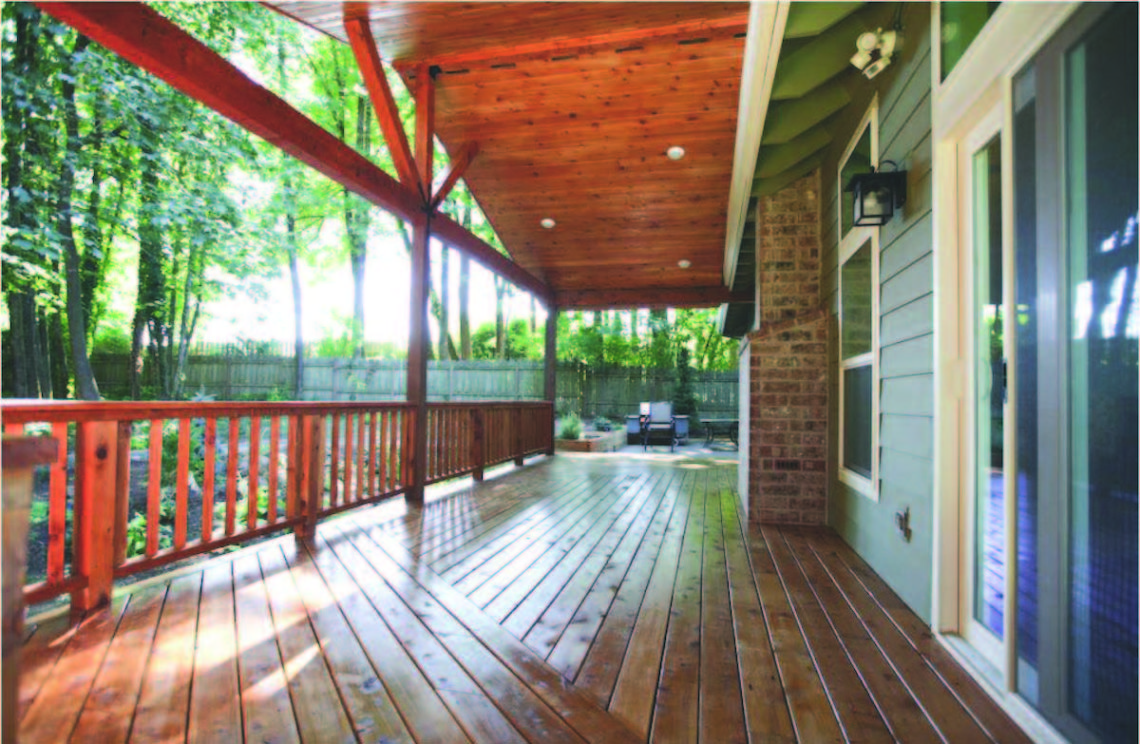When it comes to woodworking, you might wonder, “Is juniper good for woodworking?” Well, you’re in the right place! In this article, we’ll explore the qualities of juniper as a wood material, its uses in woodworking projects, and how it compares to other popular wood species. So, let’s dive in and discover all the amazing things juniper can bring to your woodworking creations!
Juniper, with its unique characteristics and beautiful grain patterns, can add a touch of natural elegance to your woodworking projects. Whether you’re crafting furniture, carving intricate designs, or building decorative items, juniper’s versatility shines through. Its resilience and durability make it suitable for both indoor and outdoor applications, allowing you to unleash your creativity in various ways.
But how does juniper hold up against other wood species? Is it a top contender for your woodworking endeavors? Throughout this article, we’ll explore the pros and cons of using juniper, providing you with valuable insights to help you determine if it’s the perfect choice for your next woodworking project. So, let’s embark on this woodworking journey and delve into the world of juniper!

Is Juniper Good for Woodworking? Exploring the Possibilities
When it comes to woodworking, the choice of wood is crucial. Each wood species has unique properties and characteristics that can affect the outcome of your project. One often overlooked option is juniper wood. In this article, we will delve deep into the world of juniper and explore its suitability for woodworking projects. From its natural beauty to its durability, we will examine the various aspects that make juniper a viable choice for any woodworking enthusiast.
Why Choose Juniper for Woodworking?
Juniper, a member of the cypress family, is a type of softwood that is prized for its distinctive characteristics. Its natural reddish-brown color, swirling grain patterns, and sweet aroma make it visually appealing for furniture, cabinetry, and decorative items. Despite being a softwood, juniper boasts impressive durability due to its high resin content, making it resistant to rot, moisture, and insects. Additionally, juniper is readily available and sustainable, making it an eco-friendly option for woodworking projects.
The Beauty of Juniper
One of the primary reasons woodworkers choose juniper is its stunning beauty. The reddish-brown hue, often with streaks of lighter and darker tones, adds warmth and character to any piece. The unique grain patterns, with their swirls and knots, give juniper a rustic and organic charm. The combination of color and grain variation makes each juniper project truly one-of-a-kind. Whether used for a dining table, bookshelf, or decorative bowl, juniper will undoubtedly enhance the visual appeal of your woodworking projects.
Alongside its aesthetic beauty, juniper also possesses a delightful natural fragrance. The scent, often described as earthy and reminiscent of cedar, adds another sensory dimension to juniper projects. Whether you’re building a jewelry box or a bed frame, the aromatic properties of juniper can create a pleasant and soothing atmosphere in any space.
Durability and Strength
Despite being classified as a softwood, juniper surprises with its exceptional durability. The high resin content found in juniper wood makes it naturally resistant to moisture, rot, and insect infestation. This makes it an ideal choice for outdoor furniture, decking, and other pieces that will be exposed to the elements. The inherent strength of juniper also lends itself well to structural projects such as beams and posts.
Additionally, the resinous nature of juniper wood contributes to its dimensional stability. It is less prone to warping or splitting, making it easier to work with in various woodworking applications. Whether you’re carving intricate details or joining pieces together, juniper’s stability ensures longevity and a professional finish for your projects.
Working with Juniper
Juniper is a joy to work with in the workshop. Its relatively soft texture allows for easy cutting, shaping, and carving. It responds well to hand tools, power tools, and even CNC machines. However, it is important to note that juniper does have a tendency to produce a gummy residue during machining due to its resin content. Regular blade cleaning and dust extraction are necessary to maintain optimal cutting performance.
Moreover, the stability of juniper wood reduces the risk of movement during the drying process. While it is still advisable to let the wood acclimate to your workshop environment, juniper tends to retain its shape and dimensions more consistently compared to other softwoods.
When it comes to finishing, juniper wood takes well to various treatments. Its natural reddish color can be enhanced with clear finishes or subtle stains. The grain patterns can be emphasized with the right choice of finish, magnifying the visual appeal of the wood. Whether you prefer a smooth and glossy surface or a more natural and rustic appearance, juniper can accommodate a wide range of finishing options.
Projects Showcasing Juniper’s Beauty and Versatility
1. Juniper Coffee Table
A juniper coffee table can be the centerpiece of any living room. The rich reddish-brown color combined with the unique grain patterns will add a touch of elegance to your space. With its durability and stability, a juniper coffee table will be an investment piece that will last for years.
2. Juniper Cutting Board
Juniper’s natural resistance to moisture and its beautiful appearance make it an excellent choice for cutting boards. The swirling grain patterns not only look stunning but also provide a textured surface that helps with grip and preventing knives from slipping.
3. Juniper Outdoor Bench
Take advantage of juniper’s durability and resistance to the elements by building an outdoor bench. Its natural rot and insect resistance, combined with its stunning beauty, make juniper a great choice for furniture that will stand the test of time.
Conclusion
Juniper wood offers woodworking enthusiasts a unique combination of beauty, durability, and ease of use. From its stunning visuals to its impressive strength, juniper can elevate any project to the next level. Whether you’re a seasoned woodworker or just starting out, consider exploring the possibilities that juniper presents. Its natural warmth, distinctive grain patterns, and enticing fragrance make it a standout choice for all your woodworking endeavors.
Key Takeaways: Is Juniper Good for Woodworking?
- Juniper is a popular choice for woodworking due to its beautiful grain patterns.
- It is known for its durability and resistance to rot, making it suitable for outdoor furniture.
- Juniper wood is easy to work with, making it great for both beginners and experienced woodworkers.
- Its pleasant aroma adds a unique touch to woodworking projects.
- However, juniper can be more expensive than other wood types, so keep that in mind when planning your projects.
Frequently Asked Questions
Looking to explore different types of wood for your woodworking projects? Check out these commonly asked questions about using juniper in woodworking.
What are the characteristics of juniper wood?
Juniper wood is known for its unique appearance and durability. It has a light to medium brown color, with occasional streaks and knots, giving it a rustic and natural look. The wood is typically straight-grained and has a fine to medium texture. Juniper is also naturally resistant to decay and insect infestation, making it a durable option for outdoor projects.
However, it’s important to note that juniper can vary in quality and consistency based on the specific species and the region it comes from. It’s best to source juniper wood from reputable suppliers to ensure you get high-quality material for your woodworking projects.
Is juniper suitable for indoor woodworking projects?
While juniper is more commonly used for outdoor projects, it can also be used for some indoor applications. Its unique appearance and rustic charm make it a popular choice for furniture, cabinets, and decorative items. However, it’s important to consider the specific characteristics of juniper wood before using it indoors.
Juniper wood tends to have a strong aroma, which can be pleasant for some but overpowering for others. If you’re sensitive to smells or planning to use juniper in a confined space, it’s advisable to do a test piece first to make sure the scent is tolerable. Additionally, juniper can be prone to warping and shrinking when used indoors, so proper sealing and finishing techniques should be employed to minimize these issues.
Can juniper be used for outdoor woodworking projects?
Absolutely! In fact, juniper is a popular choice for outdoor woodworking projects due to its natural resistance to decay and insect damage. From fences and decks to garden furniture and outdoor structures, juniper can withstand the elements and provide long-lasting durability.
However, like any wood used outdoors, juniper will require proper maintenance to ensure its longevity. Regular sealing and finishing with a weather-resistant product will help protect the wood from moisture and UV damage. It’s also important to note that even though juniper is naturally resistant, using appropriate outdoor wood treatment can further enhance its durability.
What are some tips for working with juniper wood?
When working with juniper wood, it’s important to wear proper protective gear, such as safety goggles and a dust mask, as the wood can release fine particles and occasional splinters. It’s also advisable to use sharp tools for clean cuts and to minimize tear-out.
Juniper wood is generally easy to work with, but it can be dense and may require some extra effort when cutting, shaping, or sanding. Pre-drilling screw holes and using appropriate cutting techniques can help prevent splitting. Also, keep in mind that juniper wood can be resinous, so it’s a good idea to clean your tools regularly to avoid build-up.
Where can I source juniper wood for my woodworking projects?
Juniper wood is available from various sources, including local lumberyards, specialty wood suppliers, and online retailers. It’s important to choose reputable suppliers who can provide high-quality juniper wood that is sustainably sourced and properly kiln-dried.
If you have the opportunity, it’s recommended to visit the supplier in person to select the specific pieces of juniper wood you need. This way, you can inspect the quality, color variation, and grain patterns to ensure they meet your requirements. Alternatively, you can communicate with online suppliers, providing specific details about your project and asking for detailed information and photographs of the available juniper wood options before making a purchase.

NO ONE TELL THAT JUNIPER IS THE BEST / Amazing/ WoodTurning
Summary
Juniper can be great for woodworking! It is durable, has a beautiful grain pattern, and is resistant to rot and insects. However, it can be difficult to work with due to its hardness and knots. It’s important to take precautions and use the right tools when working with juniper. Overall, with the right techniques and care, juniper can be a fantastic choice for woodworking projects.
In conclusion, juniper is a versatile wood option for woodworking, offering durability, an attractive appearance, and resistance to decay and bugs. While it can present some challenges, such as hardness and knots, with the right approach, you can create stunning and long-lasting items with juniper. So go ahead and explore the possibilities of working with juniper in your woodworking projects!